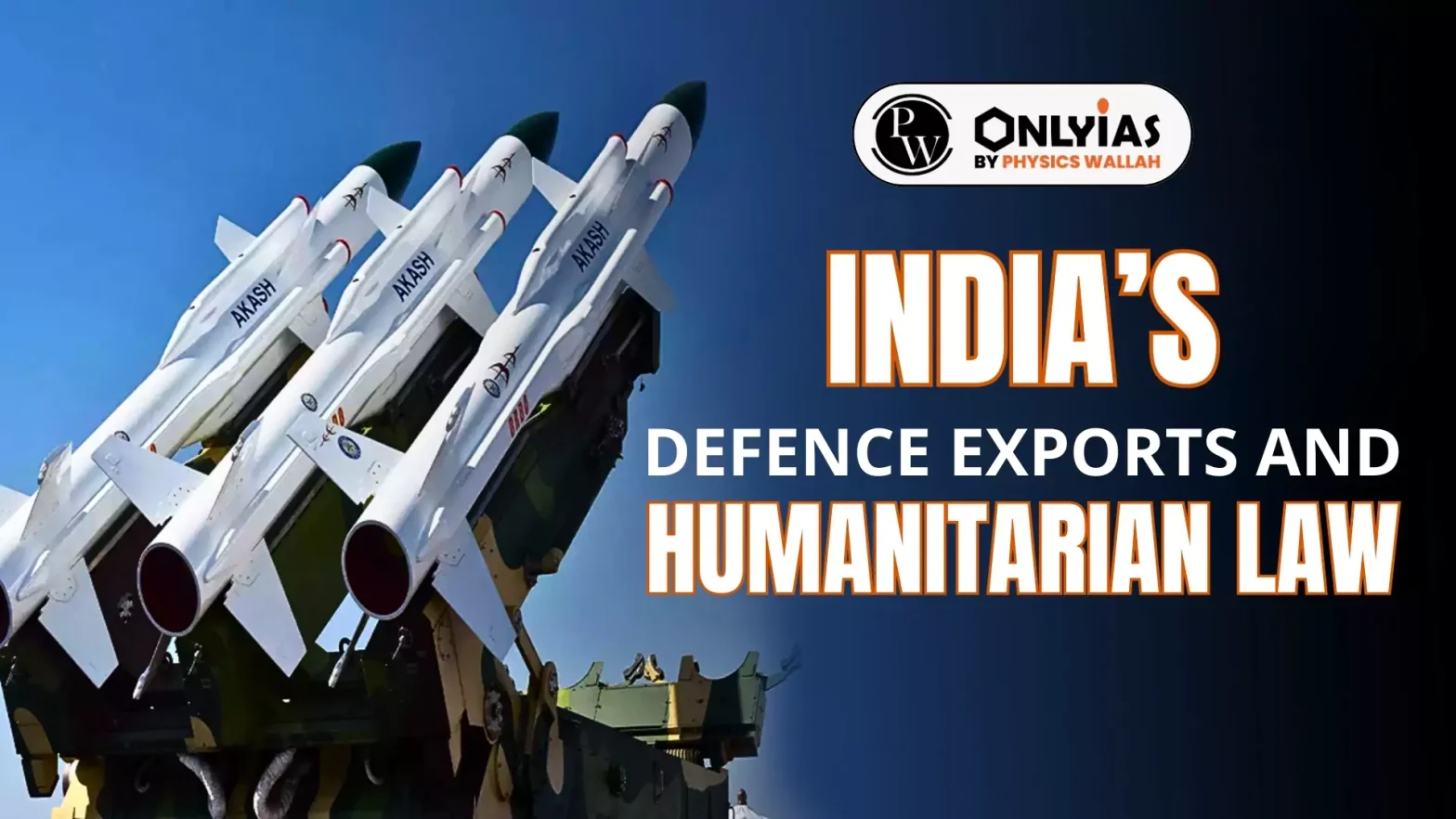Earlier this month, the Supreme Court of India dismissed a public interest litigation (PIL) requesting the central government to halt the export of defence equipment to Israel, citing war crimes in Gaza. The Court refused to intervene, stating that foreign policy does not fall under its purview. However, the issue that the PIL raised is a normative one that goes beyond Israel. It must be clearly understood given India’s aspirations to become a major defence exporting nation.
International Comparisons
- Netherlands: A Dutch court ordered the government to block the export of F-35 fighter jet parts to Israel. This decision was based on a European Union (EU) regulation that prohibits military equipment exports to countries where there is a clear risk that such equipment would be used to violate international humanitarian law (IHL). The court assessed the likelihood of IHL violations in the context of Israel’s military actions.
- United Kingdom: The UK government, acting under the Export Control Act, conducted a thorough review of its arms export policies concerning Israel in light of the ongoing conflict in Gaza. This review involved assessing whether Israel was complying with IHL. The UK government determined that there was a clear risk that exported arms could be used in ways that violate IHL, resulting in the denial of military exports to Israel.
Enroll now for UPSC Online Classes
India’s Legal Framework
- Legal Gap: There is no equivalent to the UK’s Export Control Act or EU regulations in Indian law requiring an assessment of a country’s compliance with international humanitarian law (IHL) obligations. This creates a significant legal gap regarding the evaluation of IHL compliance for countries receiving Indian defence goods.
- Existing Indian Laws: The primary legislation governing defence exports in India includes the Foreign Trade Act of 1992 and the Weapons of Mass Destruction and their Delivery Systems (Prohibition of Unlawful Activities) Act of 2005.
- Powers of the Central Government: These laws empower the Indian government to regulate exports from India to other states. The reasons on which the government can ban such exports are outlined in Sections 3(5) of the WMDA and 2(l) of the FTA. In addition to national security, another important factor is compliance with international obligations under any bilateral, multilateral, or international treaty, covenant, or convention.
Ideal course of action
The Supreme Court of India has, in previous cases such as Vishakha vs State of Rajasthan, incorporated international law into domestic legal frameworks when gaps exist. The current issue of defence exports and IHL compliance could similarly fall within this scope. The Court could judicially incorporate principles from international law, particularly concerning IHL, to guide India’s defence export policies.
- The Geneva Conventions, of which India is a signatory. Common Article 1 of the Geneva Conventions mandates that all states, including India, must respect and ensure respect for IHL.
- Past International Court of Justice (ICJ) cases, such as the Nicaragua vs. United States case, emphasise the principle that states are responsible for actions that may contravene international law. The ICJ found that the U.S. and other states should not support armed groups likely to commit violations of IHL. This precedent could serve as a guide for India’s approach to arms exports.
- The Arms Trade Treaty (ATT) is a significant international legal framework designed to regulate the trade of conventional arms and ensure that arms transfers do not contribute to human rights violations or breaches of IHL. Article 6(3) of the ATT explicitly prohibits the transfer of arms if a state has knowledge that these arms could be used to commit war crimes. Furthermore, Article 7 obligates countries to conduct a rigorous assessment of the potential for export arms to be used in serious violations of IHL before proceeding with any transfer.
Although India is not a signatory to the ATT, it would be prudent for India to adhere to the principles outlined in the Geneva Conventions, which it is a part of, to enhance its credibility as a responsible defence-exporting nation.
Check Out UPSC NCERT Textbooks From PW Store
Conclusion
To strengthen its global standing as a responsible defence exporter, India should consider amending its existing legal frameworks. Explicitly incorporating a mandatory IHL compliance review in the WMDA and FTA would ensure that India’s defence exports align with international humanitarian standards. Such an amendment would also demonstrate India’s commitment to ethical arms trade and bolster its credibility in the global arms market.
![]() 24 Sep 2024
24 Sep 2024
